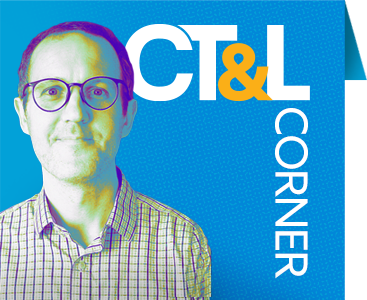Recently, I finished a book called The Last Human Job: The Work of Connecting in a Disconnected World, by Allison Pugh. In it, Pugh focuses on what she calls ‘connective labor’ (the work of helping others feel seen/witnessed: see review/overview and interview on Hidden Brain) as well as the status of this labor in a world that is trying to automate, script, and systematize connections for greater efficiency. Through interviews with educators, doctors, therapists, and more, she points to the effects of this push for efficiency: burnout, frustration with education or healthcare systems, and the temptation to bring chatbots into the equation because they are ‘better than nothing.’ Pugh’s book is a call to create systems that have generous room for connection, in spite of their human ‘inefficiencies.’
While this sounds less than uplifting, the book actually affirmed the value of connection for me. I was reminded of my first supervisor, coincidentally also named Allison. She modeled a relational approach to connecting with instructors, and I envied her ability to make people comfortable. I’d walk by her office and see two people in comfortable conversation, noting that they’d only been talking for 10 – 15 minutes. When I asked, she said that she just left space for people to speak their minds, taking an unstructured approach. I could see the results, but I still doubted the process. It was only in studying materials on mentoring, reading about the professional practices of mental health counselors (though I’ve been called ‘like a teaching therapist,’ I’m NOT a certified mental health provider), and reading about communication that I’ve come around to Allison’s wisdom (well, both Allisons’ wisdom).
While this seems like an individual phenomenon, both Allison Pugh and other scholars can point to a body of evidence that underscores the importance of relationships in many spheres, including teaching and learning. In meta-analyses (studies of studies), these effects can rival any teaching strategy that I might recommend. Don’t get me wrong, what I’m not saying is that it doesn’t matter how we teach or that our model for learning doesn’t matter. What I am saying is that regardless of our practices or our theory, the work of teaching and learning takes place in relationships. A recent book, Relationship-rich education (Felten & Lambert, 2020) points to the effects of students having even a small number of significant connections with faculty/staff at their institution, and that effect is significant. In other words, it’s the quality of relationships, not the quantity.
So much can happen in our efforts to create space(s) for students to be more authentic. We realize that students have their own aspirations, their own challenges. Recently, I came across a piece titled ‘The “student” in student success,’ and it reminded me that we often speak about student success in numerical or impersonal terms like retention. This piece focuses on an interaction between a student and a panel of faculty and administrators. This very brave student challenges the usual framing of student success by noting, “Success has never been defined by us—it’s always been given to us. Nobody ever asked me what my definition of success is.”
Whether it’s phrased as care, belonging, mattering, community, or rapport, it’s clear that relationship-building is evidence-based practice.
Image Source: https://www.theaffirmingway.com/blog/2022/6/8/the-value-of-deep-listening-5-tips-to-hone-your-skills



